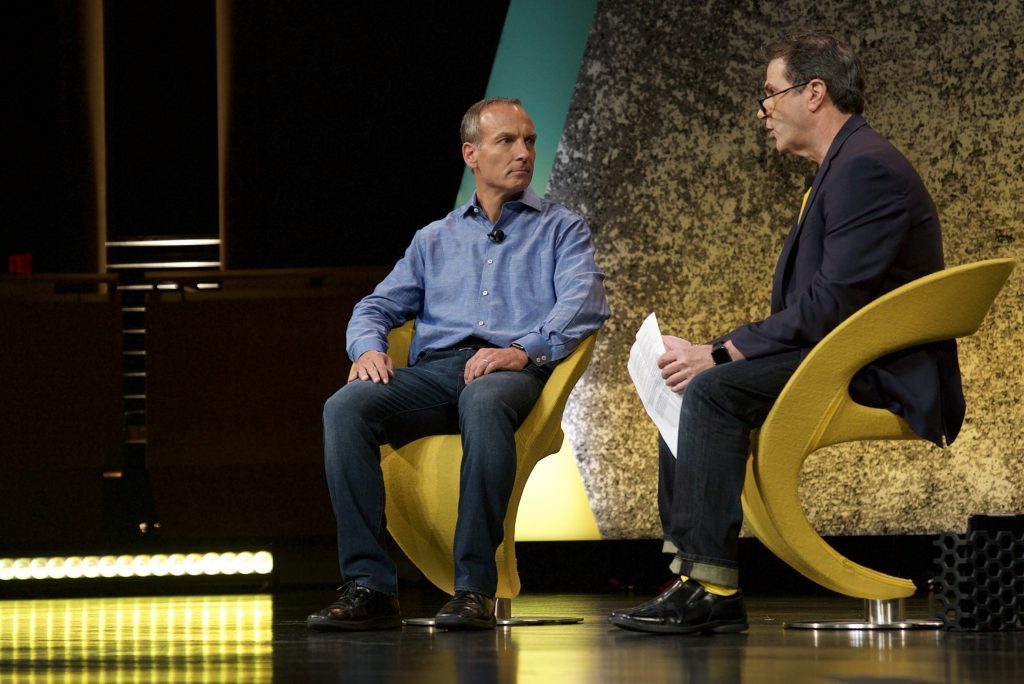Skift Take
Executives at Booking Holdings, formerly the Priceline Group, feel aggrieved that the company isn't getting the credit it deserves in alternative accommodations. In a lot of ways, its battle with Airbnb is over business models. As Airbnb ramps up hotels, we'll have to see who blinks.
Booking Holdings CEO Glenn Fogel acknowledged that the company wants to be “a leader or the leader” in alternative accommodations and he obliquely cast doubt on Airbnb’s inventory claims.
During Tuesday’s fourth quarter earnings call for Booking Holdings, formerly called the Priceline Group, Fogel said he doesn’t know for sure but has heard that some services that boast of huge property counts haven’t seen some of them booked in the past 12 months — or ever.
A San Francisco Chronicle story gives credence to the notion that short-term rental sites, such as Airbnb, Flipkey, HomeAway, and others, have plenty of dormant listings. After San Francisco began requiring hosts to register with the city, more than half of the listings were expunged, although Airbnb lost the smallest percentage among the other players, the story said.
Numerous hosts had listed their properties in the hopes of getting stays tied to the Super Bowl in the city in 2016, and many of them never booked a guest, the story said.
Airbnb claims to have 4.5 million listings, which range from homes and apartments to individual rooms. Booking.com, which tallies its roster differently, said it had 1.58 million properties, including 396,000 hotels and 1.19 million homes and apartments through December 31.
Fogel said “we may not be the global leader in this yet,” referring to alternative accommodations, but he argued Booking.com has a superior offering because it presents instantly bookable hotels, vacation rentals, and apartments all on the same page, charges no traveler fees, and has user reviews.
Airbnb is starting to ramp up its roster of boutique hotels, claimed in June that 40 percent of its listings were instantly bookable, and provides user reviews.
Not Worried About Expedia
When talking about both Airbnb and Expedia, without referencing them directly, Fogel said there is a cost tied to adding inventory. He said Booking weighs what kind of return on investment it gets when bolstering inventory and wouldn’t add hotels and apartments just for the sake of adding them.
“A good way to start is more is better,” he said, when asked how many hotels and vacation rentals is enough.
Asked about statements from a competitor — i.e. Expedia — that has vowed to add hotel supply as a priority, Fogel said rivals are always trying to add hotels, but adding inventory is just one part of the mix, and he’s unconcerned about the competitor’s statements.
“It really isn’t going to do much if you don’t execute on all the other elements,” Fogel said. He was referring to things such as offering the best pricing, a variety of accommodation types, user experience, marketing and customer service.
Adapting to Google Over the Years
Asked about how Booking is dealing with Google’s inroads in travel, including Google Hotels, Fogel said his company has had a very good relationship with Google since 2005, when Priceline acquired Booking.com.
Fogel said his company has always adapted to Google’s changes successfully, and believes it will be successful in the future, as well.
Never an Amazon
Fogel said he company is investing in branded advertising such as television, which he conceded is still a small portion of the overall marketing mix. He said that the company is investing in people, content, and new measurement tools to make its branded advertising more effective.
Fogel said Booking aspires to always be in travelers’ consideration set in a way that Amazon is coming to dominate online retail. But because consumers use a variety of tools to shop for travel, including search engines, and might only take vacations a couple of times a year, he said he doubts that Booking’s travel business will ever get to the level of Amazon in retail.
Booking, Fogel added, will always have a split between direct and third party-generated bookings, although it’s impossible to predict the future mix.
Fourth Quarter
In the fourth quarter, Booking recorded a net loss off $555.5 million compared with net income of $674 million a year earlier. The net loss was tied to a $1.3 billion income tax expense. Revenue jumped 19.3 percent to $2.8 billion.
Chief Financial Officer Daniel Finnegan said the global travel market and hotel average daily rates are generally strong, and the strengthening euro will likely bode well for travel into the United States.
Factoring in a new revenue accounting standard, the company projects revenue growth of 17.5 to 21.5 percent in the first quarter, and net income of $445 million to $465 million.
The Daily Newsletter
Our daily coverage of the global travel industry. Written by editors and analysts from across Skift’s brands.
Have a confidential tip for Skift? Get in touch
Tags: booking, earnings, priceline
Photo credit: Priceline CEO Glenn Fogel (L) appeared at the Skift Global Forum in New York City September 26, 2017. Skift
